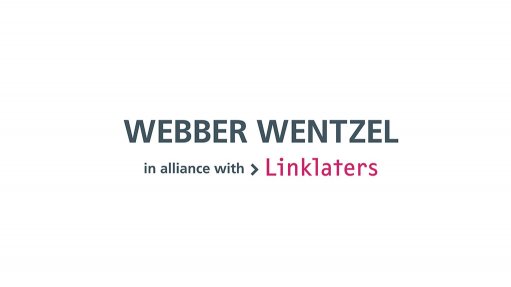
The Gauteng High Court recently dismissed the appeal of Unitrans Holdings (Unitrans) against the Tax Court judgment which had denied a tax deduction for interest incurred. The court found that the interest incurred was not closely connected to Unitrans’ business operations as an investment holding company and that the purpose of the interest was not to produce income but to further the interests of the subsidiaries.
As background, SARS had raised an additional assessment for the 2011 tax year in 2015 disallowing the interest claimed under section 24J(2) of the Income Tax Act on the basis that it was not “expenditure incurred in the conduct of any trade and was not in the production of income”. SARS however allowed the interest deduction up to the interest earned, being ZAR 34,9 million. Hence, ZAR 33,2 million interest was disallowed. SARS also imposed an understatement penalty of 10%.
In its appeal to the High Court, the court was faced with determining:
- whether the interest expense incurred by Unitrans was in the production of income derived from carrying on any trade in 2011; and
- whether the understatement penalty was correctly imposed by SARS.
Unitrans contended that it performed a treasury function for the Unitrans group which included providing loan funding and cash management services using Standard Bank to its wholly owned subsidiaries. Unitrans balanced the group’s bank accounts to zero daily. Where the group’s net cash position was in overdraft, Unitrans would borrow from Standard Bank on a call loan. If the net cash was positive, Unitrans would repay the call loan.
Unitrans had argued that it carried out trade as a money lender in its objection and also in its rule 32 statement of grounds of appeal.
However, Unitrans had the following arguments in the appeal to the High Court.
- The full ZAR 68,1 million interest was incurred more in its capacity as an investment holding company and not as a money lender.
- Unitrans relied on the CSARS v Tiger Oats Ltd decision in 2003 where the SCA held that a “holding company carrying on business as an investment holding company and making interest-free or low-interest loans to its subsidiaries in whose management it is intimately involved, is a company carrying on a business and therefore carrying on a ‘trade’”. Unitrans contended that this was exactly its position in making loans to group entities.
- Unitrans was directly involved with the management of debtor group entities because its non-executive directors (NED) receive directors' fees from subsidiaries and associated companies in the group and the NED must account to Unitrans all directors' fees paid to them.
- Although Unitrans made a loss in the 2011 tax year, Unitrans made a profit in 5 of the 6 years after 2011. If dividend income is included, then Unitrans made a profit every year from 2008 to 2017.
- This proves that Unitrans had the intention to produce income as an investment holding company providing funding to subsidiaries. One should take dividends into account because dividends are "gross income" in the Act, and it is legitimate to take gross income into account when determining whether Unitrans had a profit-making intention.
- Unitrans conducted interest-earning and interest-incurring activities involving the subsidiaries and Standard Bank with the purpose of making an overall profit.
The court noted that the key issues were to “determine whether the interest expense incurred will qualify for a deduction considering: (a) the purpose of the loan and (b) whether the expenditure is linked closely enough to the production of income”.
There were many issues with the evidence tendered by Unitrans which led to it losing the appeal at the High Court, for differing reasons to its loss at the Tax Court.
- Unitrans contended that it conducted two ventures, that of an investment business which generated exempt dividends, and that of borrowing funds to on-lend to subsidiaries with interest income. However, the interest charged to the subsidiaries was always lower than the rate of interest paid on the money it borrowed.
- It was clear from the financial statements that Unitrans earned unproductive interest. Expenses incurred in earning unproductive interest was not tax deductible.
- Unitrans did not perform any administrative, financial or secretarial services to group companies, as would be expected when performing a treasury function.
- There was no evidence provided that supported the argument that Unitrans was involved intimately in the management of its subsidiaries.
- Unitrans did not provide any evidence as to why it considered the expense claimed to be in the production of income and did not challenge SARS’ evidence that the expense was not incurred in the production of income.
- In witness testimony, Unitrans conceded that (i) the purpose of borrowing money from group companies was to on-lend to group companies that required financial assistance to salvage their businesses; and (ii) the purpose of the loan was to benefit the group companies and help them to increase their earning capacity.
- Unitrans had no intention of earning an income and borrowed funds to enable its group companies to improve their future financial income-earning capabilities by providing cheaper funding to group companies than what they could procure in the market. "Not only did it not have any intention to earn income, it structured its affairs so that it would never earn any income but would pay expenses incurred on benefits reaped by group companies."
- On the issue of understatement penalties, the High Court held as follows:
- Unitrans did not provide any evidence to show that the understatement was caused by an inadvertent bona fide error on its part.
- SARS had proved the facts on which the understatement penalty was imposed, and that Unitrans did not commit a mistake in claiming the interest deduction.
The court dismissed Unitrans’ appeal against the order of the Tax Court with costs and confirmed the 10% penalty.
Written by Joon Chong, Partner from Webber Wentzel